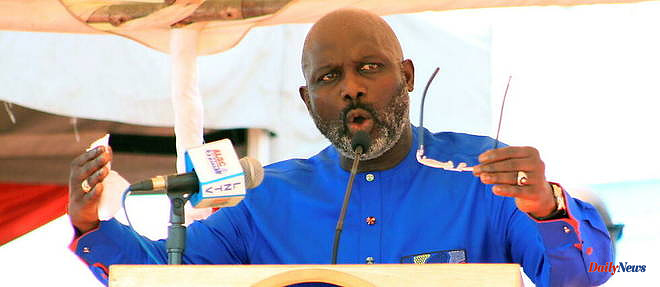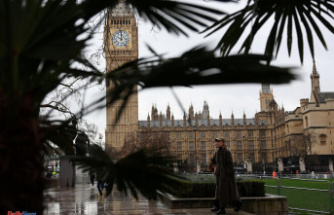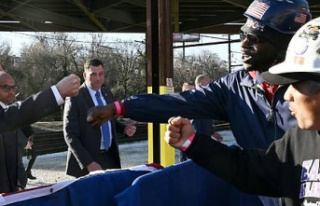Liberian President George Weah announced on Monday that he would seek a second consecutive term as leader of the English-speaking West African country in an election scheduled for October. "My dear fellow citizens, I will come to you shortly to ask you to renew (...) for the second time the mandate you granted me six years ago," said the former glory of football in a great uproar of approval at the end of the annual and solemn address on the situation of the country.
In this speech that he is required by the Constitution to deliver each year before the Houses of Parliament, Mr. Weah defended his record. "Let me assure you that our nation is strong, our nation is stable, our nation is full of life...our nation is at peace and secure, and we intend to keep it that way," a- he said.
Weah, the only African Ballon d'Or to date, who returned to politics after the end of his sports career, was elected in the second round of presidential elections in December 2017 and took office in January the following year. His victory raised immense hopes in a country ravaged by civil wars which killed 250,000 people from 1989 to 2003. And bruised at the end of a 2014-2016 period marked by an epidemic of Ebola fever which killed more than 4,800 Liberians.
The country of around five million inhabitants was struggling to recover when it was hit by the Covid-19 pandemic and then by the consequences of the war in Ukraine. About half of Liberians live on less than $1.90 a day, according to the World Bank. The former AC Milan and PSG soccer star took over the presidency promising to create jobs and invest in education. Many poor people adored the former kid from the slums who became a planetary star, then head of state.
His detractors accuse Mr. Weah of having kept very few of his promises. They accuse him of being disconnected from the realities of his fellow citizens who are struggling between rising prices and shortages of products such as fuel and essential services, in one of the least developed countries in the world. He remains exposed to the suspicion of not being in his place at the head of the state. Recently, he was attacked for his prolonged absence outside the country, forty days spent in conferences at summits, but also at the FIFA World Cup in Qatar where his son defended the colors of the United States. The presidency invoked the validity of these trips in the national interest. She also commonly evokes the heaviness of the inheritance received by Mr. Weah.
The opposition blames Mr. Weah for the persistence of a reputedly endemic corruption that he had pledged to fight. In this respect, he is under pressure from the great American ally. Washington has sanctioned five senior Liberian officials for alleged corruption in three years. Victims of civil wars are still waiting for Mr. Weah to act to hold those responsible for the atrocities to account. Regular calls for the creation of a war crimes tribunal in Liberia, where some former warlords remain powerful, have so far gone unheeded.












